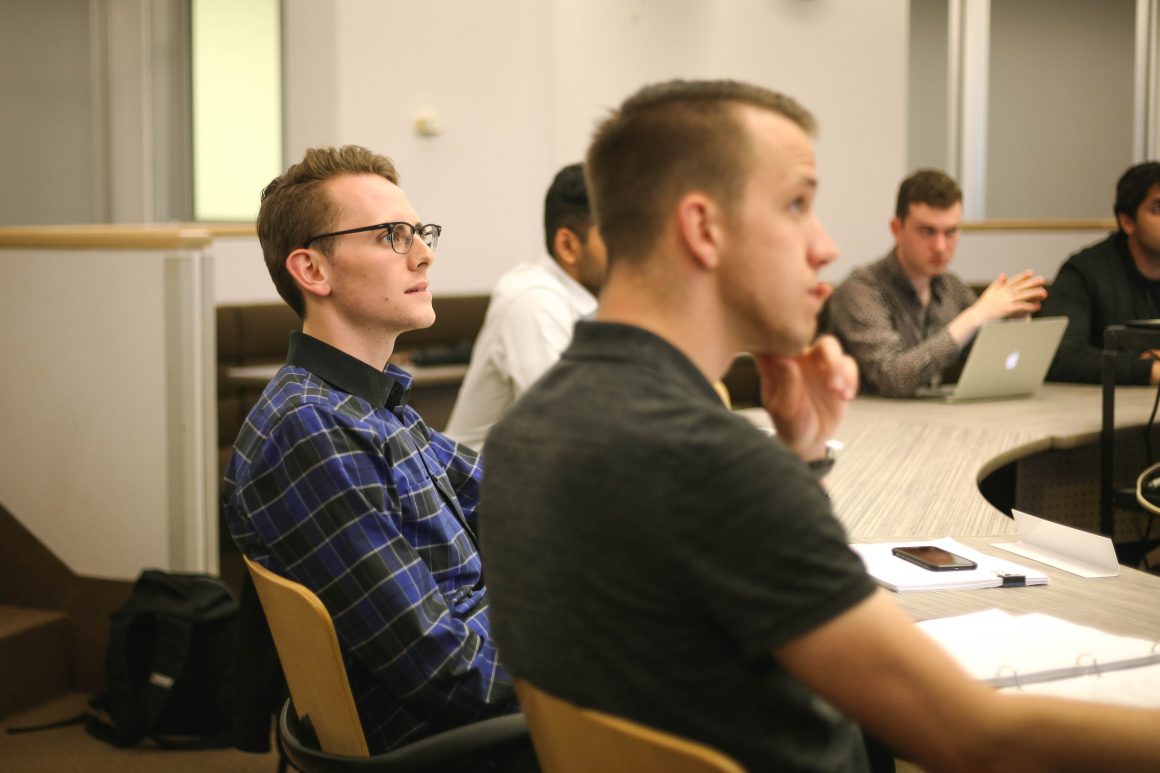
SLC starts consultation for code of conduct, passes resolutions
By Sean Willett, July 19 2017 —
High-level consultation for a formalized code of conduct began during the July 18 session of the Students’ Legislative Council. This week’s meeting of elected Students’ Union officials also saw two resolutions pass — one to repeal the terms of reference for a soon-to-be-defunct committee and one to fill a vacancy on the SU Tribunal.
Though SU bylaws state that elected officials on SLC are allowed to establish a code of conduct, no such code currently exists. The SU’s Policy Development and Review Committee (PDRC) is aiming to change this and began development of a new code of conduct in 2016. This document will outline expectations for members of the council along with repercussions for those who fail to meet these expectations.
SU vice-president operations and finance Ryan Wallace chairs the PDRC. Wallace is continuing the work of SU president Branden Cave, who started the development of the code of conduct last year.
“When it comes to accountability, we really want to make sure the code of conduct is very clear and that we’re doing this the right way the first time,” Wallace said. “That’s why it’s been such a long process. We really want it to be the right code of conduct for SLC.”
SLC consultation for the code of conduct began during this week’s meeting. Wallace asked SLC members a series of questions about their roles and responsibilities, including when they should be expected to act as representatives of the SU and how they should prioritize non-SU commitments. Most SLC attendees contributed to the discussion, which lasted over 30 minutes.
“I was really happy about all of the feedback that was brought to SLC,” Wallace said. “Members brought up a lot of good points and helped clarify some important things. It was good to hear some consensus in SLC surrounding these issues, as that’s really going to influence the code of conduct moving forward.”
The PDRC plans to submit a first draft of the code of conduct to SLC by August, with final approval expected in early December. Drafts of the code of conduct submitted to SLC will be publically accessible. Wallace encourages students who wish to provide feedback on these drafts to contact him directly.
The July 18 session of SLC also saw two resolutions passed unanimously. The first was a repeal of the terms of reference for the Haskayne student levy committee, which is in the process of being dismantled as part of a negotiated agreement between the SU and the Haskayne School of Business. This committee oversaw the distribution of project funding to business students based on interest accumulating on a trust fund created by a now-defunct student levy. This funding will be combined with the Haskayne Student Experience Fund, which is overseen by Haskayne.
“In order to continue on with these negotiations, we reached a point where we had to repeal the past committee to keep moving forward,” Wallace said.
Wallace explained that this change is intended to ease the administrative burden placed on the SU while streamlining the application process for Haskayne students applying for project funding. The SU, however, still intends to have a say on how this funding is distributed.
“One of the SU’s representatives will hopefully be mandated to be sitting on the [Haskayne Student Experience Fund] committee as a part of our negotiations with Haskayne,” Wallace said. “That representative will then report back to the SU, to make sure the original mandate of this funding is being fulfilled.”
The second resolution was to appoint a new student-at-large to the SU’s tribunal in order to fill an unexpected vacancy. The tribunal is responsible for overseeing appeals from students dissatisfied by decisions made by the SU’s review board, which is in turn responsible for bylaw-related issues brought to the union. These include things like complaints over resolutions passed during SLC or challenges to decisions made by an SU chief returning officer during an election.
The SU nominations committee chose Nicole Squires Pietzsch to fill the vacancy. Student members of the SU tribunal are expected to fill two-year terms, but the student who held the position previously stepped down due to other commitments.
